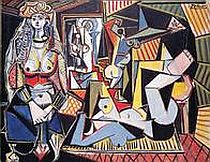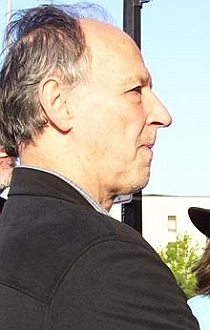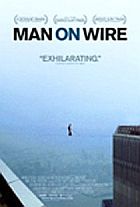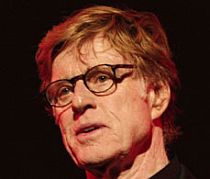


Werner Herzog: Mein liebster Feind
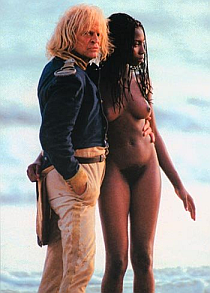
Lad mig give det råd (hvis det ikke er for sent): når du sidder med dvd-sættet “HerzogKinski” skal du helt enkelt se filmene én for én. I den her rækkefølge: “Aguirre”, “Nosferatu”, “Woyzeck”, “Fitzcarraldo”, “Cobra Verde”, “Mein liebster Feind”. 1972, 1979, 1979, 1982, 1987, 1999. Det er så selvfølgeligt, det virker selvindlysende, men det er et livsdrama for to i den skandering, årstallene angiver. Der er en fortælling i de afstande: “Woyzeck” i begejstringseuforien efter “Nosferatu” inden for ét år og så den lange pause før finalen.
Det begynder med scenen, hvor bjergsiden i Peru vokser ud af tågen så mirakuløst, og den spanske hærafdeling med bærerne vokser ud af bjergsiden, bevæger sig ned ad stien i en uendelig række. Aguirre/Kinski er en af mange, en prik i landskabet. Det slutter med, at han, nu da Silva/Kinski – igen i en eneste lang optagelse – alene på den afrikanske kyst vil slæbe en båd i havet for at forsvinde eller for at komme hjem. Han kæmper med båd og brænding til han segner og dør af udmattelse, drukner på lavt vand. Herzog gentager scenen og fortæller i “Mein liebster Feind” (og til Paul Cronin): “The final scene of “Cobra Verde” was the last day of shooting that we ever did together. He had put so much intensity into this final scene that he just fell apart afterwards. Even at the time we both sensed it, and he even said to me, ‘We can go no further. I am no more.’ ”
Sådan ser værket ud: 94 + 107 + 80 + 157 + 110 + 100 minutter. Der er en rytme i de tal. Hurtig gennemføring på “Woyzeck”, lang udredning i “Fitzcarraldo”. Og vi burde jo se det i hele udstrækningen i filmklubben på onsdag. Alle ti timer og 48 minutter.. Værkets sidste afsnit, “Mein liebster Feind” både opsummerer og konkluderer Herzogs og Kinskis arbejde sammen, deres fælles opdagelser og forståelser i sindets og fysikkens yderste territorier. Det er en aldeles usentimental, barsk og ind imellem faktisk munter elegi over en død ven. Det er en naivt enkel, kompliceret klog og ukunstlet højtragende film, denne finale. Gem den nu til sidst, begynd forfra med “Aguirre”. Se hele filmen fra først til sidst. 648 minutter..
HERZOGKINSKI, a Film Legacy. DVD-boks med de seks Kinski-film. Anchor Bay Entertainment UK, 2004. Tysk/engelske versioner af filmene. Kan købes i Filmhusets boghandel. Litt.: Lars Movin: Bogholdersandhed versus poetisk sandhed i Eva Jørholt m. fl., red.: Kosmorama 242, 2009. Paul Cronin, ed.: Herzog on Herzog, 2002. Foto: Werner Herzog i dag. Still: Kinski og en af amazonerne i Cobra Verde

